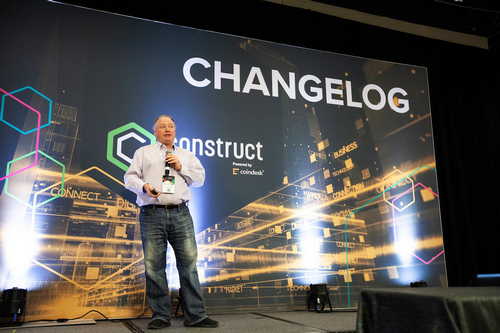According to a post published on Binance’s official blog on Jan. 21, Numbers aims to create an open, transparent and traceable data sharing, verification and management system. The firm’s open source application reportedly allows individuals to own and monetize their personal data.
Major cryptocurrency exchange Binance has invested an undisclosed sum in blockchain data monetization startup Numbers.
Since last year, Numbers has reportedly worked with nonprofit Shoah Foundation, the Stanford University and IBM to develop data traceability and verification systems to preload on the Exodus, the blockchain smartphone of tech giant HTC.
Binance’s strategy officer Gin Chao said:
“Numbers app is integrated with Binance Chain through Zion, a hardware-based key management system and offers the developer community easy access to use the Binance Chain and for hardware wallet protection, digital signature and so on.”
The beginning of a broader collaboration
Numbers’ co-CEO Bofu Chen explained that he wants to help create traceable and trustworthy data through an open data framework. He believes that trading of such data brings more trust and higher operational efficiency to society. At the same time, the system also rewards individuals for their information. He explained that the startup’s relationship with Binance is not limited to the monetary investment:
“The investment from Binance will help us explore more use scenarios and accelerate technological and business development. We are also working to open the libraries we built for the developer community in 2020 so that more developers can leverage our work and use the Binance Chain with more ease.”

This is the latest in a long series of investments made by Binance. In late December, the exchange also invested in and became a strategic advisor at crypto derivatives exchange FTX.
In September last year, Binance participated in a $200 million funding round of Beijing-based Mars Finance, a local crypto and blockchain publication. Earlier that the same month, the exchange’s venture arm led a $5.7 million funding round to launch a new decentralized blockchain protocol, the FIO Protocol.
‘Key Milestone’ for Hyperledger as Fabric Blockchain Platform Reaches 2.0 Release
Enterprise blockchain project Hyperledger has released the most significant update of its DLT framework Fabric since launch in July 2017.

The Hyperledger Foundation announced Thursday that Fabric 2.0 is designed to improve the usability and performance for the end user, with updates including new features such as decentralized governance for smart contracts and several enhancements for handling and sharing private data on the platform.
Describing the release as a «key milestone,» IBM’s VP of blockchain platforms, Jerry Cuomo, said it would allow IBM to upgrade its protocol «to leverage the new capability and improved performance.» Thomas Bohner, VP of blockchain at fintech firm IntellectEU, said the release’s new privacy features would help «drive adoption for our clients on the financial services industry.»
Hyperledger Fabric, the first project developed by the IBM-backed Hyperledger Foundation, gives companies the ability to build a variety of applications that leverage distributed ledger technology. Cloud service providers like AWS, Azure, IBM Google and Alibaba have all integrated its framework into their solutions.
The project welcomed six new members to its consortium last week, including digital business consulting firm Cognizant and the University of Hong Kong.
Initially proposed in 2016, Hyperledger Fabric supports multiple programming languages, including the Solidity language used on ethereum. Being open-source, users have gradually adapted the platform since it went live. Thursday’s release, however, is the single largest update to the protocol since its 2017 launch.
Although Hyperledger members see the 2.0 release as a sign of the project’s long-term viability, it has not been without setbacks. Fabric lost support from State Street after the custodian bank concluded it didn’t need Hyperledger’s tech to overhaul its infrastructure. FX utility provider CLS Group, which ran a public campaign marketing its new Hyperledger-based settlement platform, admitted last year the blockchain hadn’t added any cost efficiencies.

